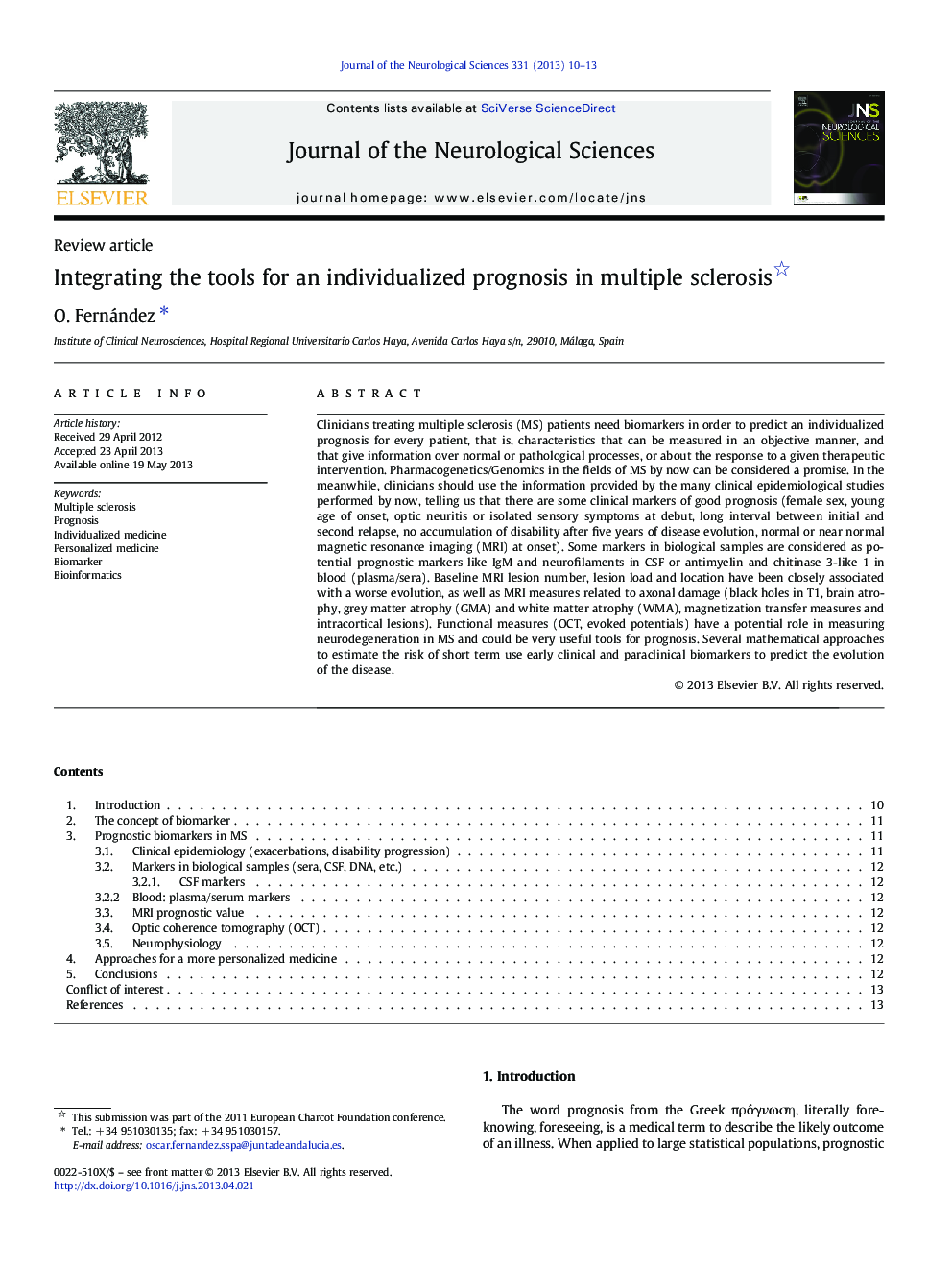| Article ID | Journal | Published Year | Pages | File Type |
|---|---|---|---|---|
| 8279425 | Journal of the Neurological Sciences | 2013 | 4 Pages |
Abstract
Clinicians treating multiple sclerosis (MS) patients need biomarkers in order to predict an individualized prognosis for every patient, that is, characteristics that can be measured in an objective manner, and that give information over normal or pathological processes, or about the response to a given therapeutic intervention. Pharmacogenetics/Genomics in the fields of MS by now can be considered a promise. In the meanwhile, clinicians should use the information provided by the many clinical epidemiological studies performed by now, telling us that there are some clinical markers of good prognosis (female sex, young age of onset, optic neuritis or isolated sensory symptoms at debut, long interval between initial and second relapse, no accumulation of disability after five years of disease evolution, normal or near normal magnetic resonance imaging (MRI) at onset). Some markers in biological samples are considered as potential prognostic markers like IgM and neurofilaments in CSF or antimyelin and chitinase 3-like 1 in blood (plasma/sera). Baseline MRI lesion number, lesion load and location have been closely associated with a worse evolution, as well as MRI measures related to axonal damage (black holes in T1, brain atrophy, grey matter atrophy (GMA) and white matter atrophy (WMA), magnetization transfer measures and intracortical lesions). Functional measures (OCT, evoked potentials) have a potential role in measuring neurodegeneration in MS and could be very useful tools for prognosis. Several mathematical approaches to estimate the risk of short term use early clinical and paraclinical biomarkers to predict the evolution of the disease.
Keywords
Related Topics
Life Sciences
Biochemistry, Genetics and Molecular Biology
Ageing
Authors
O. Fernández,
